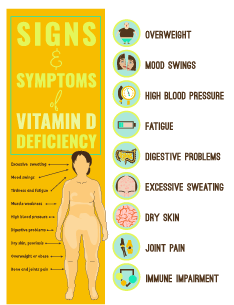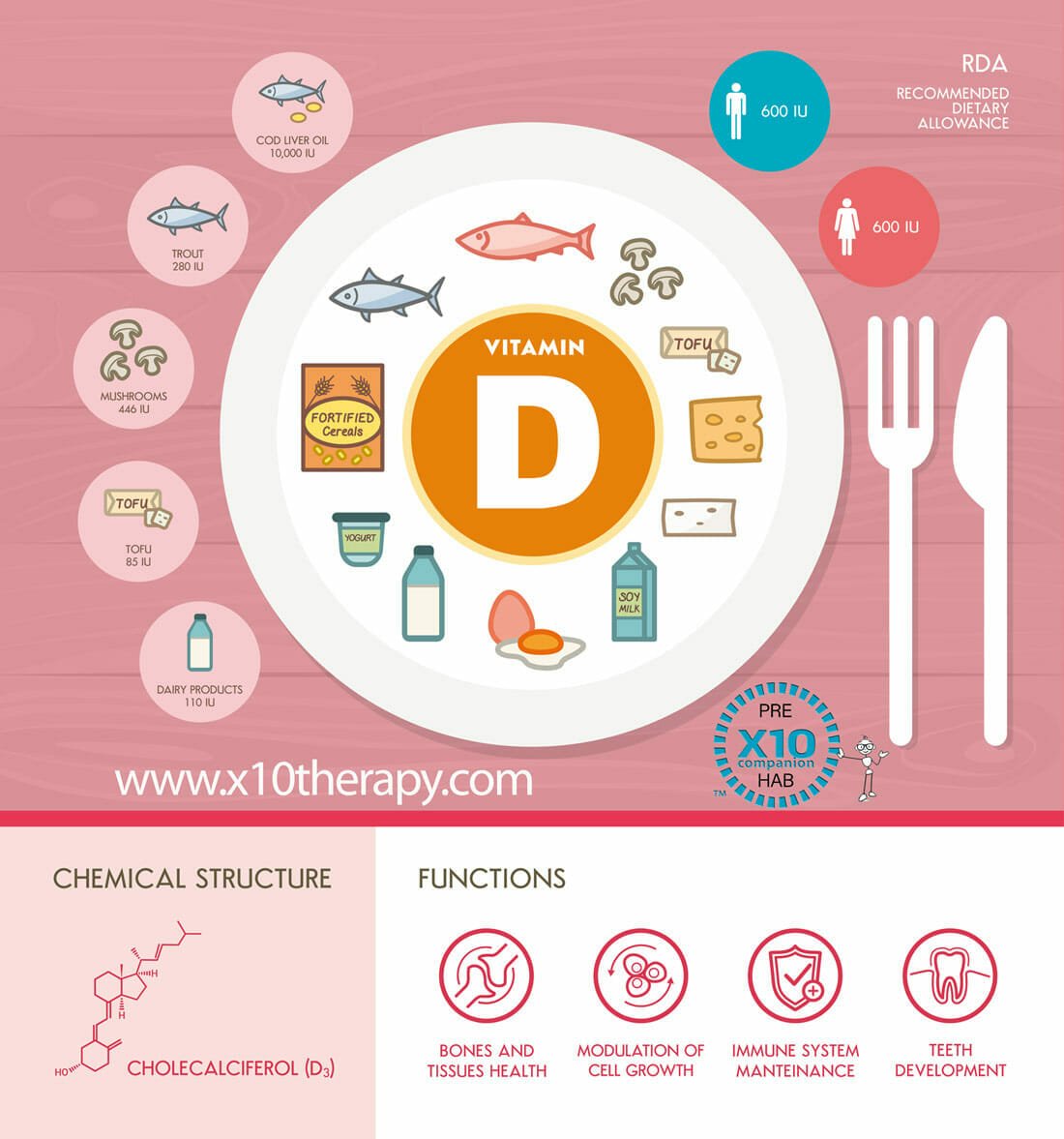written by Dr. Carl Freeman
The Lower the “D” the Higher the Risks (Vitamin D and Knee Replacement)
Knee patients who are vitamin D deficient ninety days before having a total knee replacement have a 69% higher rate of manipulations under anesthesia (MUA), a 76% higher rate of infection, and a three-fold higher risk of prosthesis removal (explantation). Vitamin D deficient patients also had an 80% higher risk of deep vein thrombosis, and twice the risk of a heart attack (Orthopedics 2018, 41(4): e489-e495). Vitamin D deficient patients also have an increased risk of falls, decreased muscle strength and increased body sway (Therapeutic Advances in Chronic Diseases 2011, 2(1) 25-37. And vitamin D is important to the proper functioning of the immune system (Proceedings of the Nutrition Society (2012), 71, 50–61). Taken together vitamin D deficient patients have a higher risk of complications following surgery than those with adequate vitamin D. Vitamin D and knee replacement are closely linked when it comes to patient outcomes.

Seniors are at higher risks for vitamin D deficiency because the ability to make vitamin D decreases with age, as does the ability to activate vitamin D in the kidneys. Many seniors have reduced exposure to sunlight because of spending much of their time indoors. If that were not enough the amount of vitamin D needed increases with age. Below age 50, 200 International units (IU’s) are recommended per day, from 50 to 70, 400 IU’s are needed per day, and after age 70, this increases to 600 IUs per day (Food and Nutrition Board at the Institute of Medicine of The National Academies of Science). And then there is darker skin. In a study of South Asians and Africans from the Caribbean, living in Britain, the rate of vitamin D deficiency ranged from 12.5% to over 42%.
Your body makes vitamin D as a result of exposure to ultraviolet light and obtains vitamin D from eating foods such as salmon, tuna, trout, fortified milk or yogurt, or from dietary supplements.
Determining the amount of vitamin D in your body requires a blood test. The limit for deficiency has changed. Until 2000 people were primarily concerned about rickets (deformed skeleton) in children, and softened skeletons in adults. These are severe effects. Since 2000 the studies indicate that the level for vitamin D deficiency should be increased from 8ng/ml to 30ng/ml a nearly four-fold increase. The information cited in this blog refers to the older standard, and thus is extremely conservative.
The above risks stem from the multiple roles that vitamin D play in the body—bone health and the functioning of muscles, the immune system, gut, kidneys, and brain. Vitamin D is important in bone health as it increases the absorption of calcium, phosphorus, and citrate in the bone. Vitamin D also regulates the amount of calcium and phosphorus ions in blood, and the absorption in gut and the kidneys. If your blood calcium level drops, then the parathyroid gland that releases a hormone which takes calcium out of bone, making the bone more brittle and prone to break (particularly in falls). Vitamin D increases the absorption calcium into the blood to prevent the loss of calcium from the bone. Thus, for good bone health we need to have adequate amounts of calcium, phosphorus, and vitamin D.
While vitamin D’s role in bone health is well known, what is less well known is the role that vitamin D plays in muscle strength. Vitamin D helps muscles contract—in short, work! Part of the typical loss of strength associated with aging is due to vitamin D deficiency
Vitamin D is also essential for maturing killer T cells in the immune system, and thus plays a pivotal role in the immune system’s antibacterial response.

Vitamin D plays an important role in helping the gut absorb calcium and other minerals in the gut, and it also helps in the kidneys to activate calcium. I should also mention that vitamin D’s role in the body is still an active area of research particularly in bone health, the immune system, and even in neurology (we know it is important in the brain but haven’t worked out all of the ways).
Vitamin D and Knee Replacement
Clearly risk factors associated with vitamin D can be ameliorated by a simple blood test and a dietary supplement. Given the upside of having an adequate supply I strongly urge all knee surgery patients to get the blood test and, if necessary, have a daily regime of vitamin D supplements. I take 6000 IU a day, as I too was found to be vitamin D deficient.
For more on building a healthy diet before and after knee replacement surgery here are two other worthwhile articles:
Foods to Avoid – Read More

